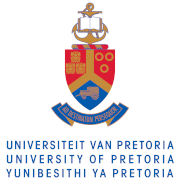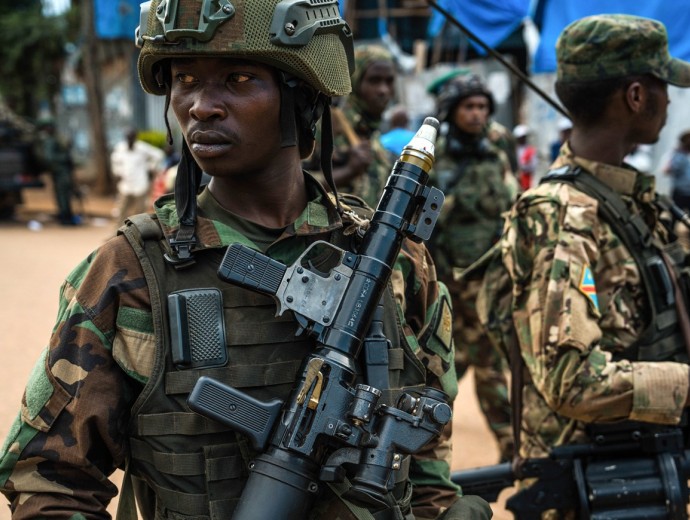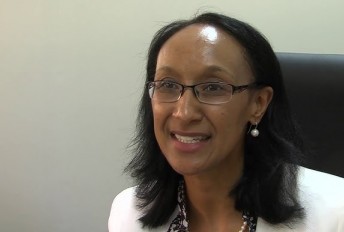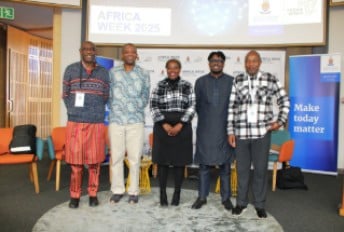This article was first published by the Daily Maverick on 2 April 2025
Democratic Republic of Congo (DRC) remains at a crossroads as the Rwandan-backed M23 (Mouvement du 23 mars) rebels capture more territory. Since January 2025, the rebel group has captured strategic cities Goma and Bakavu and entered the outskirts of the town of Walikale in late March.
DRC President Félix Tshisekedi and Rwandan President Paul Kagame met on 18 March in Doha, Qatar, for the first time since violence escalated in January. These latest talks led both leaders to call for an immediate and unconditional ceasefire and further diplomatic engagements. Violence since 2022 has displaced about seven million people in the eastern DRC – one of the highest numbers globally. Three decades of conflict in the region have also led to a military-industrial complex producing more than 100 armed groups, threatening regional stability.
Root causes
Addressing three enduring sets of root causes can break this cycle of violence.
The first is M23 grievances, including poor service conditions during their integration into the Congolese army, ethnic discrimination, marginalisation, limited security for Tutsi populations within the DRC and a failure to implement the 23 March 2009 peace deal.

M23 rebels guard a unit of surrendering Congolese police officers to be recruited into the rebel group on
22 February 2025 in Bukavu, Democratic Republic of Congo. (Photo: Hugh Kinsella Cunningham / Getty Images)
Analysts have argued that their motives are also economic because they often target strategic mineral-rich locations for capture.The group’s origin can be traced to the CNDP (commission nationale du débat public), formed in July 2006 following the failures of a June 2003 peace process and other similar grievances. History repeated itself when former CNDP members within the military protested against the 23 March 2009 peace deal, resulting in the formation of M23 in an April 2012 mutiny.
Kigali links
Since its CNDP days, the group has been linked to Kigali, with recent reports detailing Rwanda’s support, including about 3,000 to 4,000 Rwandan Defence Force (RDF) soldiers observed in DRC territory. Brokering a peace deal between Kinshasa and M23 is crucial to peace in the region because the group poses an existential threat to the DRC – it undermines the country’s territorial integrity and monopoly on the use of force. M23 vows to march to the capital, but analysts argue that the more apparent goal is capturing territory in the east, possibly aiming to push for federalism during negotiations with the DRC government – a possible area of further deadlock in peace talks.
External interference
A second set of root causes is external interference. Following the April-July 1994 Rwandan genocide, fear of Tutsi retribution from the Kagame-led Rwandan Patriotic Front (RPF) resulted in about 1.2 million Rwandan Hutus fleeing into the eastern DRC – including an estimated 25,000 former soldiers of the Forces Armées Rwandaises (FAR) and 40,000 Interahamwe militiamen who were genocidaires.
From their new makeshift Hutuland in North Kivu, they raided Rwandan territory and clashed with Congolese Tutsis. Kagame disagrees with successive DRC administrations on addressing this matter; he was in close cooperation with late president Laurent-Désiré Kabila during the First Congo War (1996–1997), a relationship that consolidated Rwanda’s military and business influence in the eastern DRC.
Their relationship deteriorated as resistance from Rwanda contributed to the outbreak of the Second Congo War in 1998, following Kabila’s attempt to expel external actors.Kigali is also in disagreement with the current DRC administration over external armed groups operating within the eastern DRC against Congolese Tutsis, and posing security threats to Rwanda, especially the Democratic Forces for the Liberation of Rwanda (FDLR) militiamen.
The group was officially formed during the Second Congo War as a coalition of former Interahamwe militias, former FAR soldiers, and political opponents of Kagame. Kigali believes the FDLR is a security threat in Rwanda’s border areas, periodically raiding and announcing its goal to overthrow Kagame. Initially, the group boasted 2,500 fighters but recently declined to about 1,500-strong. Analysts have argued that the low numbers of FDLR fighters make Kigali’s claim improbable.
Economic interests
The third set of root causes is international economic interests. The mineral-rich DRC has attracted local, regional and global interests capable of derailing peace processes. For example, Rwanda maintains a significant military presence in the region and is alleged, alongside Uganda and several external and internal militia groups, to have illegitimate financial stakes in the DRC’s mines.
Moreover, Chinese companies, often linked to Beijing, control cobalt, uranium and copper mines in the eastern DRC. Although US companies sold most of their DRC-based cobalt mines to the Chinese during the Barack Obama and first Donald Trump administrations, Trump appears keen to rekindle interest in DRC minerals. While such international relations occasionally claim to address developmental needs, their true interests sometimes lie in securing resources, often at the expense of fuelling political instability. These challenges lend themselves to three important conversations in ongoing peace processes.
First, M23 grievances of marginalisation, ethnic discrimination and limited security point to unmet human needs – the conflict is therefore an inevitable consequence of unfulfilled non-negotiable human needs. Proposed peace talks should emphasise such needs. Second, despite scepticism over Rwanda’s FDLR claim and downplaying its involvement in the eastern DRC, it is difficult to ignore fears of fleeing Rwandan genocidaires – ongoing international peace talks such as recent Qatar-led dialogues, and Southern African Development Community (SADC) and the East African Community (EAC) broadened mediation efforts, are therefore needed to address Rwanda’s role in the conflict.
Third, sanctions have been a go-to tool for the international community in the eastern DRC, with the US, Britain, Canada and Germany sanctioning individuals associated with rebel groups, including government officials. These have done little to address international interference, sometimes even exacerbating conflict – a recent example is M23 backing out of peace talks in late March, citing new EU sanctions as its justification. In this regard, dialogue remains the only potential tool for ending the cycle of violence and exploitation in the eastern DRC.
Dr Samuel Igba is a post-doctoral fellow at the University of Pretoria’s Centre for the Advancement of Scholarship (CAS) and researcher at the Centre for Mediation in Africa (CMA).
Disclaimer: The opinions expressed in this article are solely those of the author and do not necessarily reflect the views of the University of Pretoria.










 Virtual Campus
Virtual Campus
Get Social With Us
Download the UP Mobile App